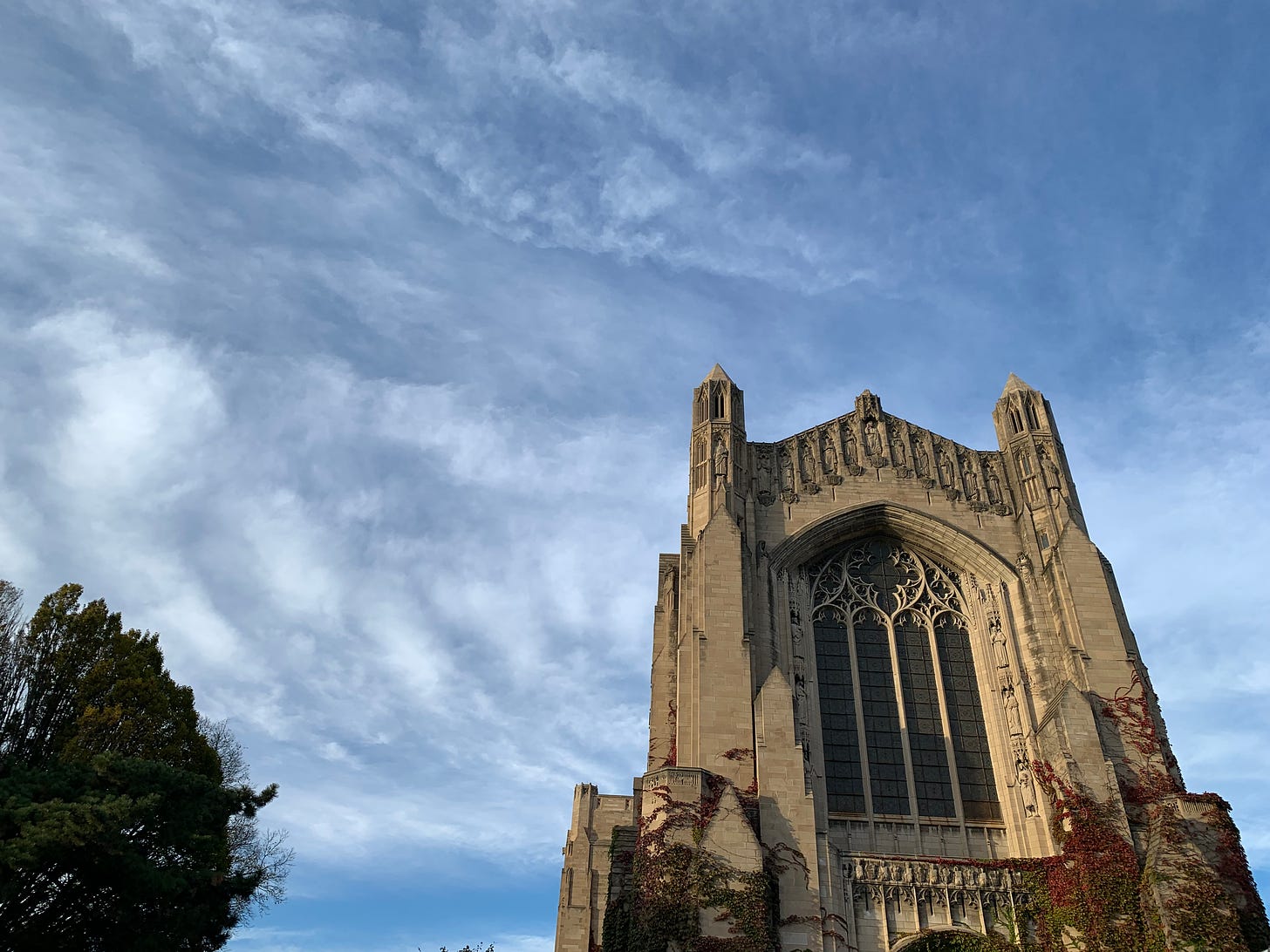When we moved to Milwaukee almost a year ago, Emily and I knew that finding a worshiping community would be difficult, but we didn’t know it’d be this hard.
Rather than attending a local church, I am writing this morning from a coffee shop on a Sunday morning.
It has become a liturgy of sorts—Saturday evening we scan GoogleMaps for local congregations, look at their websites, try to find old bulletins and sermons online, and then work up the energy to go on Sunday morning.
Then, each week, Sunday morning comes and we already feel exhausted. Some weeks we find the energy to visit a new congregation, other weeks we drive past the church and sit at a coffee shop, sometimes we go thrifting at a “Saint Mary’s” or “Saint Vincents,” and some weeks we decide it is best not to leave the house at all.
In Bible college, I gave a hardy ‘amen’ whenever a peer or professor would quote Saint Cyprian: “He cannot have God for his father who has not the church for his mother … there cannot be salvation for any, except in the Church.” What I took for granted, however, is having a church community at all.
To be sure, being a part of a gathering of believers is no easy task. But even more difficult, I have found, is finding a place of worship where you can find yourself among the congregants, where the ministry of the church is nourishing and life-giving, where the Gospel of Jesus is proclaimed, where the sacraments are administered with reverence and caution, where the tangible needs of the community are being met, and where the leadership can be trusted.
My co-author for a book project, Nick Tangen, asked me last weekend how I feel writing about “community” when I find it so sparse in my own life. Reflecting for a moment, the first thoughts that came to mind were memories of worship, praise, sacrament, and love.
I recalled the tears shed leaving Immanuel Anglican Church in Chicago to move to New Jersey. I remembered the radical hospitality of Jacob’s Well in North Brunswick who invited Emily and me into the worshiping life of their community even as strangers. I thought of the church I grew up in just outside Green Bay, Wisconsin and my first years of Christian faith that were formed in that space.
I responded to Nick honestly—I missed it. I know my soul continues to crave the sound of a congregation singing and the proclaiming of the Word and forgiveness of sin, the sight of the Spirit creating joy in the lives of those around me, the taste of the bread and the wine, the smell of incense on Easter Sunday, and the warm embrace of neighbors gathered together under the lordship of Christ.
Perhaps this is why it is so painful to attempt, Sunday after Sunday, to hope for this again only to find spaces marked by exclusion, tribalism, faith driven by politics, weak theology, and self-interest. Rather than joy, Sunday services have been an ongoing source of anger and frustration.
Sunday morning, while internally debating if I was willing to visit another church, I came across this tweet from Michael Yorke:
Like Frei, I am convinced theologically that I should have an ecclesial (church) grounding and location for my theological work. Theology must never be divorced from the life of believers. Like Frei, I feel theologically uneasy about the places where I feel a greater sense of belonging. And, like Frei, I question how long I might remain a theologian without a foot firmly planted in the local church.
At this point, I do not have answers—only a long and growing list of questions.
Even still, I have absolute certainty that the Holy Spirit is alive and at work in my city and in the lives of believers and congregations here. And I am committed to finding these spaces and bringing their stories of hospitality, hope, and love to the world.
Reading:
Karen Swallow Prior, The Evangelical Imagination: How Stories, Images & Metaphors Created a Culture in Crisis (Baker, 2023).
James M. Gustafson, An Examined Faith: The Grace of Self‐Doubt (Fortress Press, 2004)
Watching:
Succession - Season 4 (HBO Max)








A shared tension my friend. Thank you for writing about it with grace, care, and humility. And may belonging surprise us even in these liminal spaces.